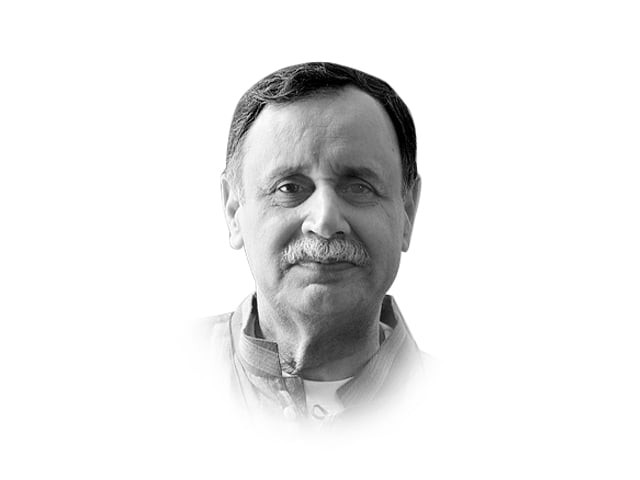Deweaponisation — our only option
No peace is possible in Karachi or elsewhere if we continue to advance our reasoning through the barrel of a gun.

The writer is a health, safety and environment consultant
While the polio vaccine may prevent future crippling disabilities, the more urgent problem for Pakistan is to manage its already deranged section of society. In a span of 24 hours, six female health workers were shot dead by second-century zealots armed with 21st-century weapons. A massive proliferation of firearms has reduced Pakistan to a society where the pressing of triggers has replaced logic and dialogue as the preferred mode of conflict-resolution. The government stands dysfunctional and helpless — its role limited to announcing compensations for the victims, almost like a sordid incentive for an untimely death.
Freedom and the right to life, liberty and speech are often the first victims in an armed society. Girls in Swat erased Malala’s name from their school walls, not because they respected her any less, but because they did not wish to be killed by the fanatics. Pakistan has chosen to be a violent society where private militias patronised by political parties, religious fanatics and criminal gangs actually call the shots. The control of towns and cities seems to be with the groups that own the most weapons.
The word ‘gun control’ is not part of our vocabulary. No one really knows how many licences were issued or to whom. Each time, the figures are different and there is a footnote of missing records. The Supreme Court in its suo-motu case 16/2011 concluded that the federal government had issued 46,114 licences of prohibited bore and 1,202,470 licences of non-prohibited bore during the past five years. Not to be left behind, the Sindh government admitted to having issued another 400,000 gun licences. The Sindh minister for food declared that his assets include an armoury of weapons costing Rs7.5 million and an expense of Rs2.5 million for the bullets consumed.
Weapons are also a key component of the class struggle in Pakistan. The rich and the powerful wish to have an exclusive ‘right to kill’. While Article 9 of the Constitution provides the right to life and liberty to every citizen, it is defeated by the hugely discretionary Arms Ordinance 1965. Using this law, the powerful and influential receive hundreds of licenses for prohibited and non-prohibited bore weapons. Their abhorrence for any form of arms control is thus well understood. This forces the lesser citizens to resort to unlicensed weapons, which are easily and freely available.
No peace is possible in Karachi or elsewhere if we continue to advance our reasoning through the barrel of a gun. While peaceful political solutions are pursued, it is inconceivable that peace can be sought without eliminating the primary tool that is used to manufacture violence. No citizen, regardless of his rank or status, rich or poor must be allowed to possess, carry or display any weapon of any bore — licensed or otherwise. Providing security is the responsibility of the state and it must not be sublet to private armies.
The reforms for peace must begin by repealing the discriminatory and discretionary Arms Ordinance. No one should henceforth have the authority to issue any licence to anyone. The already issued licences for all kinds of weapons must be cancelled. A ‘Deweaponisation Commission’ should be established to create and implement a phase-wise deweaponisation strategy to take back all weapons from every citizen of Pakistan. Weapon smuggling, transporting and selling must be eradicated. The private weapon manufacturing factories can be regulated and placed under strict government controls. Their stocks can be purchased by the government and sold for export purposes only. A nationwide database of weapons must be created to record every weapon manufactured, stored, transported, sold, exported, etc to create traceability for every serial number.
Banning all guns is absolutely necessary but not sufficient. We need a fundamental transformation in the way we live our lives, teach tolerance in schools and our leaders should make less militant appearances. If we value freedom and wish to remain free citizens, we must be willing to chart this difficult course.
Published in The Express Tribune, January 3rd, 2013.















COMMENTS
Comments are moderated and generally will be posted if they are on-topic and not abusive.
For more information, please see our Comments FAQ